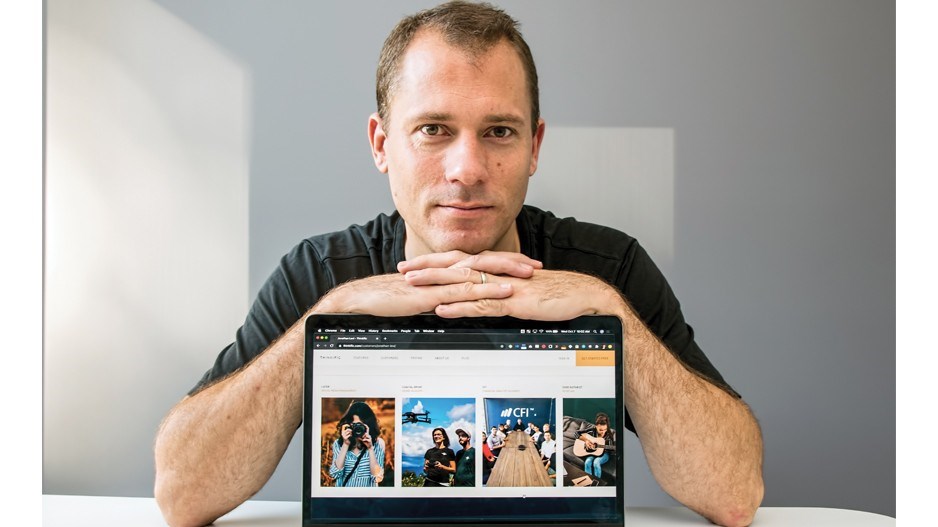“We just went through a very unprecedented time – not just for the company, but for the planet,” says Greg Smith, CEO of Thinkific Labs Inc. (TSX:THNC).
His tech firm saw growth explode in the immediate wake of the pandemic as people hunkered down and turned to the Vancouver company’s online course creation platform, which saw activity surge 200 per cent in early 2020.
Two years and one initial public offering later, Thinkific revealed this week it was cutting 100 employees – 20 per cent of its workforce – after posting a $26-million loss in its last fiscal year.
“We've been growing and adding to our team as rapidly as we can to be able to support [growth], especially over the last couple of years, and it got to a point just coming into 2022 as we looked ahead and recognized it was prudent to control costs,” Smith told BIV.
“It really came down to controlling costs, but doing it with a view to preserving our growth.”
It’s not the only B.C. company in the innovation space to lay off workers this year.
B.C. biotech Zymeworks Inc. (NYSE:ZYME) cut 25 per cent of its staff in January following founder Ali Tehrani’s departure as CEO. Losses there had grown US$40 million to US$212 million in 2021 – up from US$171 million a year earlier.
Nicole Davidson, CEO of Vancouver-based Beacon HR Inc., said the injection of 100 or so tech workers into the labour market is a “welcome reprieve” for B.C., which is currently facing a big talent crunch.
“It's perhaps also a signal of a post-pandemic market shift,” Davidson, whose firm specializes in recruiting tech talent, said in an email.
“I expect to see more layoff activity in the coming months and the pendulum start to swing back from the ultra-tight, employee-centred market we've been experiencing these last few years.”
Two days following Thinkific’s mass layoffs, 58 of the 100 workers are actively advertising their availability on a webpage set up by their former employer.
Laid-off workers include those in research and development, sales and marketing, customer support, admin and management. Some say they’ll need a few weeks or months before they’re ready to work but about two-dozen indicate they’re available immediately.
“They're not people we're letting go because they failed to perform. They're amazing people who I'm really sad to see go and a lot of companies will be extremely happy to have them,” Smith said.
“I've had a ton of outreach from fellow founders and executives saying, ‘We're looking, we're hiring, send us who you can or let us know.’”
Thinkific temporarily closed its headquarters near Science World on Tuesday and held a virtual meeting with all its employees to announce the layoffs. About 80 per cent of its employees are considered to be based in Vancouver, while the remainder are considered to be primarily remote workers.
Those who held onto their jobs saw their calendars updated immediately to reflect another meeting Thursday morning to discuss the company’s future.
Laid-off workers’ calendars reflected that there would be a different discussion following Tuesday’s all-hands meeting.
“One person said that within an hour afterwards, they had been hit up by five recruiters,” Smith recalled.
Thinkific’s headcount nearly doubled over the course of its last fiscal year, going from 270 to 500.
Following an initial public offering in April 2021, Thinkific joined the growing herd of B.C. unicorns – startups with valuations of US$1 billion or more – emerging from B.C. at a rate never seen before.
Shares have declined steadily since, debuting at $13 and falling to just under $3 when the layoffs were announced Tuesday.
Following the job cuts, shares jumped 20 per cent by the close of trading Wednesday.
“It's hubris sometimes, I think, for CEOs to assume that their short-term efforts drive share price,” Smith said.
“If that movement is because of our [news] release, I'm hopeful that it's because investors think it was the right decision and the responsible decision to make. But realistically if you look at our price over the last year, and you map it against any other tech company, it's a very, very similar chart.”
The closest comparison among B.C. tech companies to hit unicorn status last year is Copperleaf Technologies Inc. (TSX:CPLF).
Shares were trading at nearly $25 the day of their debut in October 2021 and are now trading at just over $16 a share.
Smith said he didn’t feel pressure from investors to cut jobs and that he would have made the same decision if Thinkific was still privately held.
“It was the prudent thing to do regardless of public or private, irrespective of share price or anything like that,” the CEO said.
While the decline in shares lines up similarly to the loosening of pandemic-induced restrictions, Smith said he’s confident about future growth of the company that currently has 32,000 paying customers.
He added Thinkific was growing 60-100 per cent annually in the years leading up to the pandemic, “so no concerns that this isn't still something that people want to do. In fact, I think it's something people want to do more now.”




